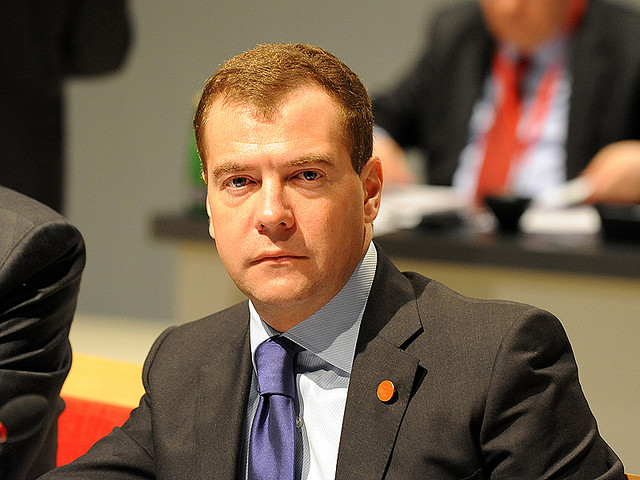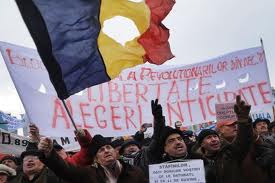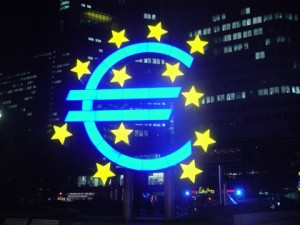
Electoral Reform in Russia: End of the Line for the ‘Locomotives’
Russia’s out-going president, Dmitry Medvedev, has submitted a bill to the State Duma proposing that parties should be banned from fielding ‘fake’ candidates at the top of regional lists for Duma elections. These candidates, usually well-known or popular figures, are referred to in Russian as parovozy(locomotives), and have no intention of taking up seats in the Duma. They appear on the ballot paper solely to attract voters. Following the election, they cede their seats to lesser-known candidates further down the list. Medvedev’s proposals are part of a wider programme of electoral reform, including the re-introduction of gubernatorial elections, which were abolished in 2005. Directly appointed governors had become a liability to the Kremlin in recent years: as an unintended consequence of its …

Honour and Solidarity: The 2012 Romanian Protests
On January 12, over 1,000 Romanian citizens came out on the streets of Bucharest to protest against the resignation of Raed Arafat, the Minister of Health. Mr. Arafat’s resignation was triggered by his discontent over proposed reforms to the emergency medical system under a new health law and also as a result of criticisms from Romanian President Traian Basescu, aired on national television. A Romanian citizen of Palestinian origins, Mr. Arafat is regarded by many as a national hero. In 1991, he created SMURD, a mobile emergency service which has thus far saved thousands of lives and is the most modern and advanced medical facility that the country possesses currently. Due to a lack of government investment and staff departures, the medical …
How much more can the Greek nation take (until it fights back)?
Yesterday Geoffrey Gertz commented in this blog on German Finance Minister Wolfgang Schäuble’s statement on elections in Greece. Indeed solving this crisis will be tough, but perhaps international relations theories can offer some advice on what is needed to address current problems. Part of what is downplayed in recent analysis is the impact of the crisis on national emotions and pride. Realism and Liberal Institutionalism propose that national interest drives states to act the way they do. This type of post hoc rationalising to explain outcomes works successfully enough for academics, policy-makers and journalists; however, what they are missing is how such an interest comes about and what fuels it. Richard Ned Lebow of Dartmouth University published in 2010 ‘Why Nations Fight’. In …
Did the German Finance Minister Seriously Just Suggest Greece Postpone Elections?
I didn’t think it was possible, but the situation between the Greeks and the Germans just grew considerably more ridiculous. German finance minister Wolfgang Schäuble said in a radio interview that the Greeks should postpone national elections planned for April and instead adopt a technocratic government that leaves out the country’s major political parties (h/t Tyler Cowen, who correctly files this under ‘Department of Yikes’, and it’s worth noting that the Finns and the Netherlands are also apparently on board with the German plan). Wow. Due to the Eurozone crisis a lot of things which would have seemed unthinkable a few years ago are now plausible, but even by our new 2012 standards this is just insane. Suffice it to …
Thinking in old terms: can a structural adjustment programme work in Greece?
Taking a step back from the immediate uncertainty over Greece (see here for the latest updates), I’m struck by how similar the situation is to those created by the old 1980s/1990s IMF and World Bank Structural Adjustment Programmes (SAPs). Reading accounts of the negotiations (especially a story in today’s New York Times about how the Germans, IMF, and ECB don’t trust the Greeks), you could rather easily replace “Greece” with “Nigeria” or “Senegal” and be transported 20 years back in time. We can go down the similarity-list. An urgent need for new official lending to roll over past debts? Tick. Tough loan conditionality attached? Tick. Domestic pushback and questionable democratic legitimacy? Tick. Of course, it’s all playing out more publicly/more quickly …

Another Summit, Another Bleak Day for European democracy
EU leaders gathered in Brussels on Monday for more ritual banging of the euro-austerity drum, with 25 of the 27 member states agreeing to the Germany-inspired ‘fiscal compact’ treaty – to be signed in March (only the Czechs joining David Cameron in sitting on the sidelines). With the new treaty commitment to outlaw expansionary – Keynesian – economic policies, it was another bleak day for European democracy. Some had hoped that the summit’s focus on growth and unemployment, especially youth unemployment, meant the Europe’s top politicians were finally recognising Europe’s deepest problems – and might even take action. But it was a bleak day too for the unemployed with a tired rehash of free market policies in the summit statement …

The Passing of Vaclav Havel
Prague: 23rd December 2011. There are many fuzzy contours to the upcoming year, marred by pessimistic forecasts and feelings of uncertainty and anxiety. These are echoed in the melancholic atmosphere of today’s Prague. Yet, right at the time when one would think that most Czechs are able to care only about things which bring them material profit, the bulk of the people in this country show that such a judgement would be harsh and unfair: thousands and thousands of them, all visibly moved, have been attending designated places (first a church near the Charles Bridge, later the Vladislav Hall in the Prague Castle) to bow down before the coffin of our former President, usually after waiting for hours in long …

Cameron taking UK out of Europe without a referendum?
When the ‘make or break’ summit to save the euro finished in Brussels on Friday afternoon, David Cameron headed rapidly for the exit without the traditional end of summit press conference (making do, unusually, with only an interim pre-dawn one as the leaders stumbled out from their almost ten hours overnight talks for a short break before breakfast). As the dust settles from this critical summit, the gap between the UK and other European countries has never been wider, nor the UK’s influence closer to zero. As Tory sceptics applaud what any sane observer would call a major foreign policy disaster, could it be that Cameron is in the process of taking the UK out of the EU without a …









